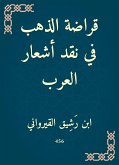The study of philosophy - in this book - does not stop at the Arab philosopher "Al-Kindi" or the second teacher "Al-Farabi," but rather extends to include the philosophical opinions of: the wise poet "Abu al-Tayyib al-Mutanabbi," the Arab Ptolemy "Al-Hasan ibn al-Haytham," and the sheikh of the innovators. In Islam, Ibn Taymiyyah. Perhaps Sheikh Mustafa Abdel-Razzaq would point out to us that the study of philosophy among Muslims should not be limited to famous philosophers only, as Muslim scholars were known to be distinguished by their encyclopedism. We find Ibn Sina, for example, who excelled in medicine, mathematics, astronomy, and nature, but he had his own opinions in philosophy. This book was distinguished from its counterparts in the works that dealt with these philosophers and sages by the unique approach in referring to historical sources to find out the social and political factors and the intellectual environment that produced these great works. What also distinguished it was the investigation into knowledge of the conditions, lineages, upbringing, teachers, and students of each of them. The book was also distinguished by its presentation of Islamic philosophy from an Arab-Islamic perspective, regardless of the Orientalists' lack of knowledge of the nature of the Islamic heritage.
Dieser Download kann aus rechtlichen Gründen nur mit Rechnungsadresse in A, B, BG, CY, CZ, D, DK, EW, E, FIN, F, GR, H, IRL, I, LT, L, LR, M, NL, PL, P, R, S, SLO, SK ausgeliefert werden.









